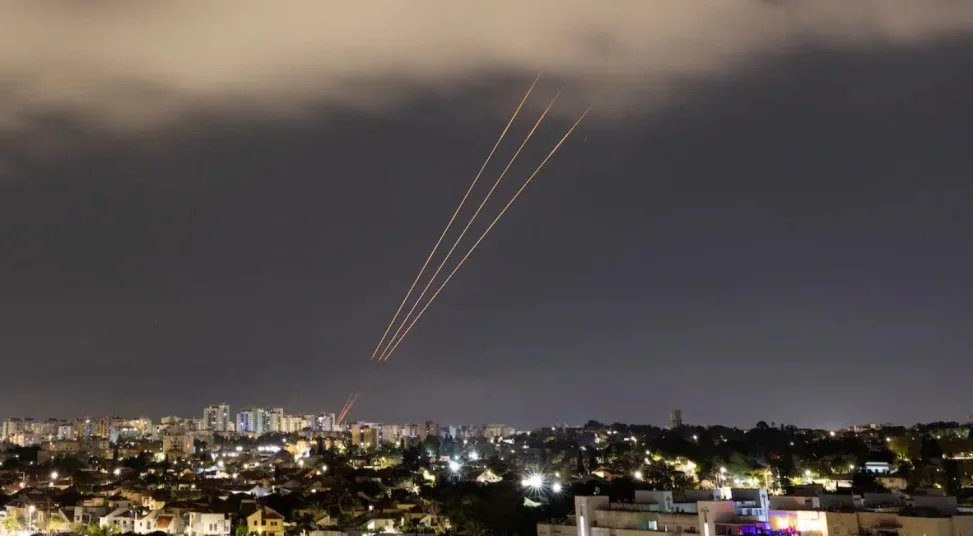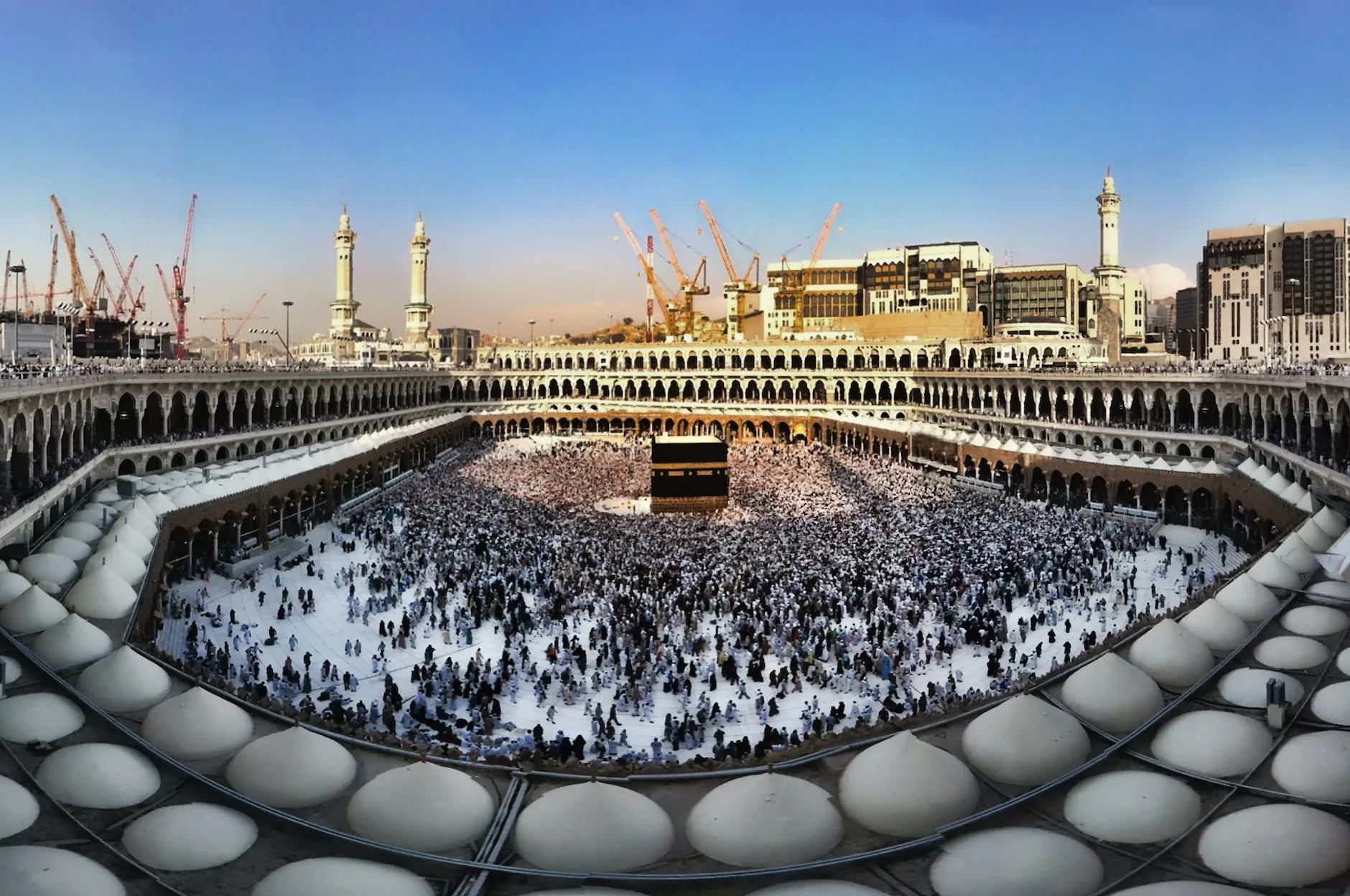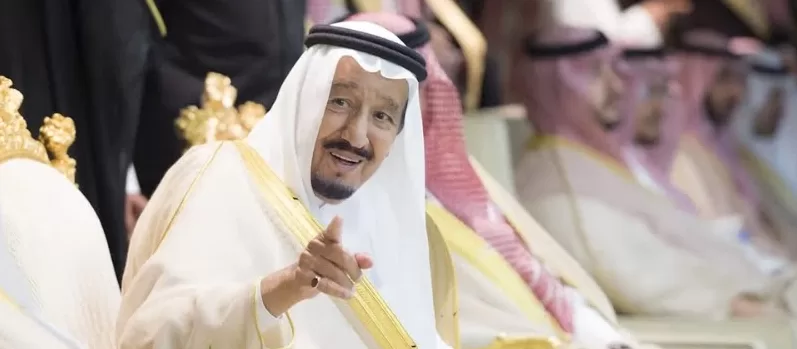According to TOI, Saudi Arabia and UAE Helping Israel Against Iran Attack.
According to a recent report from the Wall Street Journal, Gulf states, including Saudi Arabia and the United Arab Emirates, played a crucial role in providing intelligence regarding Iran’s plans to attack Israel. This collaboration, led by the United States, aimed to counter the threat posed by Iran.
Overnight on Saturday-Sunday, Iran launched a significant assault on Israel using hundreds of ballistic and cruise missiles alongside drones. However, by Sunday morning, the Israel Defense Forces, with support from the US and other allies, successfully intercepted approximately 99% of the incoming threats, minimizing damage.
The report highlights the extensive cooperation across the region, with countries such as Jordan actively participating in intercepting drones and providing vital intelligence and airspace assistance. Saudi Arabia and other key Arab governments, whose full involvement remains undisclosed, also contributed to the effort.
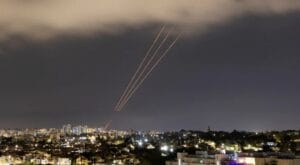
US officials, in response to Iran’s threats following an alleged Israeli airstrike on April 1, urged Arab governments to share intelligence and assist in intercepting potential attacks. Despite initial hesitancy, Saudi Arabia, the UAE, and Jordan eventually agreed to cooperate, with Jordan allowing the use of its airspace for defense operations.
In the days leading up to the attack, Iranian officials informed Gulf states of their planned response against Israel, allowing these countries to secure their airspace and provide essential details to the US and Israel for defense planning.
During the attack, a coordinated defense effort involving radars from Gulf countries, US operations centers, fighter jets from multiple nations, and Israel’s missile defense units effectively intercepted the incoming threats. Despite facing over 100 simultaneous ballistic missiles, Israel’s air defense systems successfully neutralized the majority of them, with only minor damage reported.
The collaboration underscores ongoing efforts by the US to foster military cooperation between Israel and Sunni Arab states to counter Iran’s regional influence. The Abraham Accords in 2020 and Israel’s inclusion in the US Central Command in 2021 have facilitated closer ties and enhanced regional security cooperation.
While Israel has covert cooperation with Saudi Arabia, formal diplomatic ties remain contingent on progress in the Israel-Palestinian peace process. Nevertheless, the successful response to the Iranian attack demonstrates the effectiveness of the informal alliance in confronting shared threats.
The recent escalation in violence, including Hamas’s cross-border attack on Israel and Hezbollah’s actions along the Lebanese border, has raised concerns about the potential for a broader regional conflict. Western allies are reportedly urging Israel to exercise restraint in its response to avoid further escalation.
Iran-Israel Clash: A Shift in Dynamics with Far-reaching Consequences
The recent direct drone and missile assault by Iran on Israel has not just altered the usual course of engagement between the two nations but has also nudged the Middle East closer to a potentially wider conflict, with ramifications that could reverberate across the entire region.
For decades, tensions between Iran and Israel have simmered beneath the surface in the complex landscape of the Middle East. Since the Iranian revolution in 1979, Iran has maintained a staunchly anti-Israel stance, actively fostering and financing support for a network of allies dubbed the ‘axis of resistance.’ This network spans across Lebanon, Syria, Iraq, Yemen, and Palestine, effectively encircling Israel’s borders.
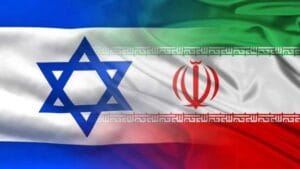
However, what was once seen as mere proxies for Iran have now evolved into formidable partners with significant autonomy and the ability to coordinate operations across borders. The recent October 7 attacks served as a wake-up call for Israel, prompting a reassessment of its strategy towards Iran and its broader axis of allies. It became evident that Israel’s previous approach had failed to adequately ensure its security.
Following the attacks, Israel swiftly pivoted to a more proactive strategy, targeting key figures within the axis of resistance and Iranian assets along its borders. This shift in approach underscores Israel’s acknowledgment that a new strategy was necessary to counter the evolving threat landscape.
Read Also:
- Israel Response to Iran Missiles and Drones Attacks 2024
- Saudi Arabia Booked 21000 Buses Ready to Serve Hajj Pilgrims : 2024
Despite Iran’s consistent messaging emphasizing its desire to avoid a broader regional conflict, its direct and targeted strikes against Israel indicate a shift in Tehran’s risk appetite and strategic calculus. By directly engaging with Israel, Iran aimed to redraw the boundaries of the conflict, signaling its readiness to take matters into its own hands.
However, Iran’s decision to telegraph its intentions to multiple parties prior to the attack suggests a calculated move to avoid catching Israel off guard. This strategic choice, while limiting the element of surprise, allowed Iran to execute a relatively contained strike while gathering valuable intelligence on Israeli defenses.
While the attack may not have achieved its intended goal of inflicting significant harm on Israel, it succeeded in prompting a substantial response from both Israel and the United States. The financial and military resources expended by Israel and its allies in countering the attack underscore the impact of Iran’s actions.
Moreover, the attack inadvertently led to a shift in international perception, with Israel’s isolation following its Gaza conflict now giving way to renewed support from Western allies. The sight of Arab nations, Western powers, and Israel collaborating to counter a common threat presents a powerful image of solidarity in the face of adversity.
In conclusion, while Iran’s attack may not have achieved all its objectives, it has undoubtedly altered the geopolitical landscape of the Middle East, setting the stage for potential further escalation and emphasizing the need for diplomatic efforts to de-escalate tensions in the region.

